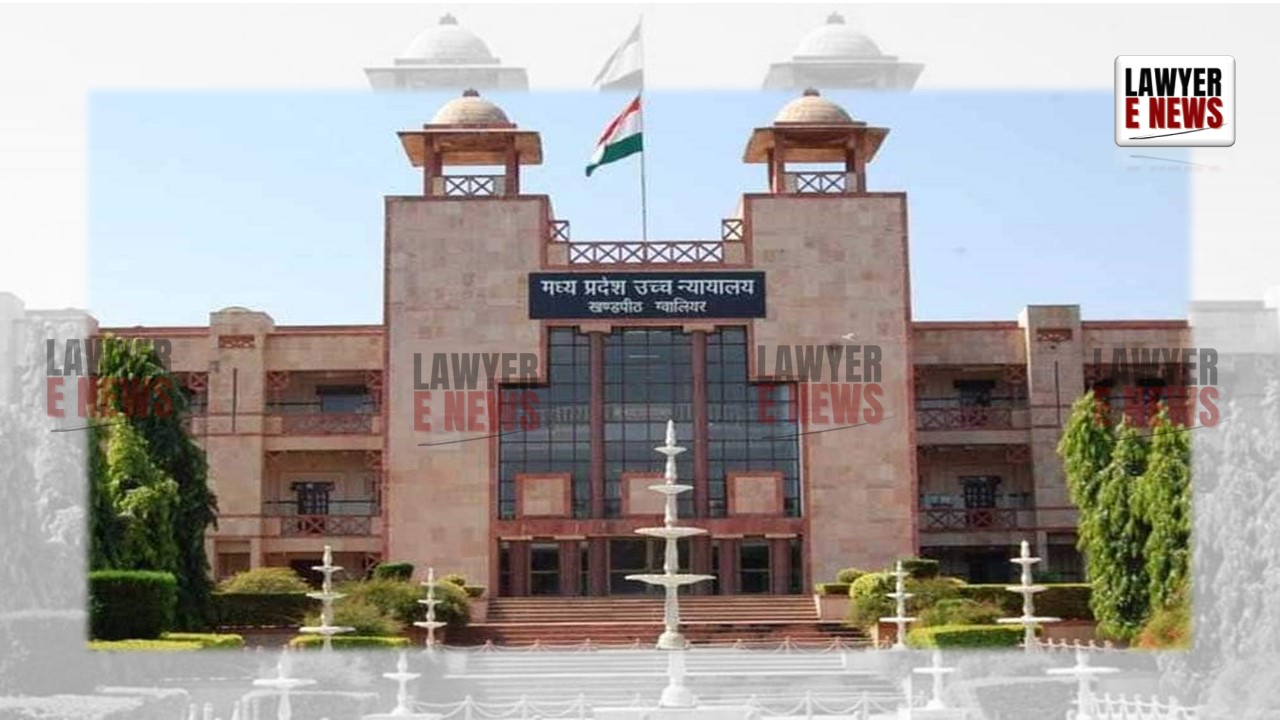-
by Admin
15 February 2026 5:35 AM



Madhya Pradesh High Court, Indore Bench, partially allowed a revision petition challenging the maintenance awarded by the Family Court. The court upheld the wife's entitlement to maintenance under Section 125 of the Code of Criminal Procedure (Cr.P.C.) but reduced the monthly maintenance amount from ₹25,000 to ₹20,000, considering her qualifications and earning capacity. The maintenance for the minor child remained unchanged.
Court's Key Observation: "Financial Support Required Even if Wife is Capable of Earning"
Justice Prem Narayan Singh, while deciding the case, held that the mere fact that a wife is well-educated and capable of earning does not disqualify her from claiming maintenance. However, the court also took into account the wife’s qualifications and abilities and adjusted the quantum of maintenance accordingly. The court reiterated:
"A husband cannot renounce his responsibility to provide for his wife, even if she is educated and capable of earning. Nevertheless, the amount of maintenance must be fair, neither oppressive to the husband nor insufficient for the wife."
The petitioner, Amit, challenged the Family Court's order awarding ₹25,000 per month as maintenance to his wife, Namita, and additional maintenance for their minor child. Amit argued that his wife, being well-qualified with an M.Com. degree and involved in a professional career (film acting), was capable of supporting herself and did not need such a high maintenance amount. He claimed that the amount awarded was financially burdensome, especially since he was responsible for other dependents, including his father and brother.
Namita, on the other hand, contended that despite her qualifications, she was not earning a sufficient livelihood to support herself and their child. She asserted that her husband's income, as a senior manager in a private bank, allowed him to provide adequately for her and their child. The Family Court had earlier awarded ₹25,000 per month in her favor, but Amit sought a reduction in this amount.
The key legal question was whether Namita’s qualifications and earning capacity justified a reduction in the maintenance amount. The case revolved around the following legal principles:
Section 125 of Cr.P.C.: Provides for the right to claim maintenance by a wife, child, or dependent parent from a person with sufficient means who neglects or refuses to maintain them.
Quantum of Maintenance: The court had to determine whether the maintenance awarded by the Family Court was reasonable, considering both the financial status of the husband and the wife’s ability to earn.
Amit argued that since Namita was qualified and had previously worked in films, she did not require such a large sum as maintenance. He claimed that her standard of living could be maintained with a lower amount, especially given his own financial responsibilities.
The High Court rejected Amit's argument that Namita’s qualifications and capability to earn should disentitle her from maintenance. Citing the Supreme Court’s ruling in Sunita Kachwaha vs. Anil Kachwaha, AIR 2015 SC 554, the court stated:
"Merely because the appellant-wife is a qualified post-graduate, it would not be sufficient to hold that she is in a position to maintain herself."
Thus, the court upheld the wife’s entitlement to maintenance despite her qualifications. The court noted that financial support was necessary to ensure that she could maintain a reasonable standard of living, similar to what she was accustomed to during her matrimonial life.
However, considering Namita’s M.Com. degree and past involvement in professional work, the court deemed that the maintenance amount of ₹25,000 was on the higher side. The court referred to the principles laid down by the Supreme Court in Rajnesh vs. Neha and Ors., (2021) 2 SCC 324, stating that the maintenance awarded should:
"... neither be so extravagant which becomes oppressive and unbearable for the respondent, nor should it be so meager that it drives the wife to penury."
Balancing these factors, the court reduced the maintenance amount from ₹25,000 to ₹20,000 per month. The court considered Amit’s financial position as a senior manager in a bank and noted that Namita had the capacity to earn, though not at a level sufficient to forgo maintenance entirely.
The court made no changes to the maintenance awarded for the minor child, stating that the amount should continue until the child attains the age of majority. This decision was based on the principle that the child’s needs and upbringing should be prioritized and not impacted by the wife's earning capacity.
The Madhya Pradesh High Court partially allowed the criminal revision, reducing the maintenance awarded to the wife from ₹25,000 to ₹20,000 per month, while leaving the maintenance for the child unchanged. The court reaffirmed the wife’s right to maintenance despite her qualifications, while also ensuring that the amount awarded was not excessive given her ability to earn.
Date of Decision: October 15, 2024
Amit vs. Smt. Namita and Others
